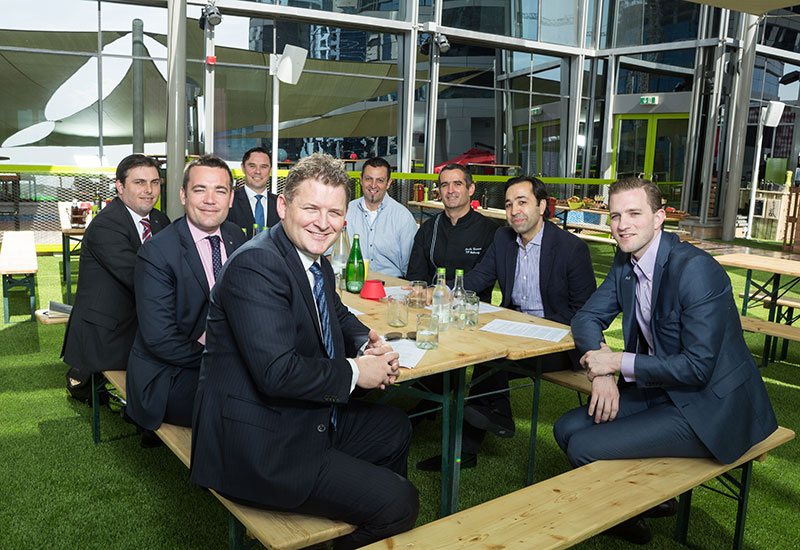What benefits can third parties bring to a hotel’s concepts?
Felix Hartmann: It keeps the hotel F&B on our toes seeing what the third-party operators are doing and it creates a nice competitive spirit in the building. Everyone is driving the business much more aggressively because you have internal competition now, if rightly chosen, complementing the hotel offering.
Julien Besancon: Bice and Hilton opened 15 years ago and now both brands, Hilton Dubai Jumeirah and Bice are associated, so really it was part of the variety of the F&B outlets and it also benefits the hotel and the in-house guests. So that’s an example of a successful brand.

| Advertisement |
Naim: I remember the opening of the hotel and people used to say ‘is Hilton where Bice is?’ That’s how strong the brand was. The market was different. Brands were needed on the market, whereas now our challenge is that if a brand is needed it has to be delivering. We’ve done Roberto’s in DIFC — there is no brand, there’s an individual but I think that’s where the market is moving to.
James Worthington: Having Jason Atherton’s Marina Social brings in people from outside who might not necessarily have come because they’re not familiar with the other F&B outlets. So suddenly you’ve got this revenue stream that’s coming into Marina Social and they see these other outlets — you’ve got a wine bar. So that’s how it starts layering up, and layering up, and suddenly you get a revenue base from the whole area other than the hotel. So that’s really important to have that fit where price points, service delivery is different. If they’re all doing the same thing what’s the point? You’ve got to have that flexibility in the service and in the food offering.
Alban: I agree that it’s important to get a third party, whether in a franchise or a lease. It helps you bring footfall and to get known on the market. We have Benihana as a franchise and we have people coming here and then you tell them we have other outlets, like Rosso and then they come to taste.
Do third-party restaurants and in-house concepts have crossovers with recruitment and staffing?
Marc: It is our responsibility to make sure we do train our staff so that we retain them, but the advantage we have as a big company is we tend to build a future. For example, with Hilton we have our apprentice programme, which was launched more than two years ago where we have a lot of commis in the kitchen that are going up the ladder. We offer them a future if they want to stay. We have the Lobster Ink, the Shine programme to help the F&B manager become director of operations, so we have to leverage that. But ultimately it’s our responsibility to improve them and to give them the tools to grow and stay within our company.
James: I agree, but in my experience in third-party restaurants people stay a lot longer because they can see that growth within the business. Sometimes it’s forgotten in hotel restaurants — they’ll move to another company or move to another role within the company — but you lose that intellectual property they’ve gained over those years. So retaining staff through training is essential.
Julien: On our side we have the key people of the outlet and usually the CVs of the candidates are recommended by the brand. We have a succession plan where we are recruiting the best members of staff for our prime outlets such as Bice for example.
James: If you have a restaurant that stands apart from the others in the hotel then that’s a succession plan. You have someone who’s working through the ranks in the feature restaurant or wine bar and then if they say ‘I’ve got this experience’ you can put them in there and say ‘I’ve got someone who ticks those boxes’. Then you’ve got someone internal, you’ve got succession planning, your experience level goes up.
Naim: It does cause of a lot of internal chaos among employees, if you work in one outlet that’s successful, or you make more tips. It’s about how it’s handled — ‘How come I can’t work there?’ It’s a challenge.
Julien: But to avoid this, what we do is we offer the junior team members for a couple of outlets such as all-day dining, banqueting and room service, and then with the succession plan of 18 months, 24 months, they’re moving to this prime outlet, this signature outlet.
Article continues on next page ...









 Search our database of more than 2,700 industry companies
Search our database of more than 2,700 industry companies









